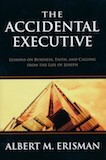Everything Matters: Public Relations as a Cultural Act
Blog / Produced by The High Calling
I’ve spent 38 years in the public relations business, mostly for companies. I’ve occasionally been asked, “Have you ever lied for your company?” The question speaks volumes about what people think about PR in general, but I can truthfully say I have never lied for any company or organization I’ve worked for.
Of course, it may be the wrong question. If I were asked, “Have you ever been asked to lie for your company?” my answer would be different.
The Public Relations Society of America (of which I’ve been an accredited member since the early 1980s and a “fellow” since 2005) has a code of ethics. All members are expected to follow this code. Most do; the society has an enforcement procedure for those who don’t. The problem is that not everyone in PR belongs to the society, and not everyone who practices PR follows a code of ethics.
The PRSA code of ethics says you represent, you promote and you defend, but you don’t lie, and you don’t mislead. The gray areas can be large; some things are black or white, but many are not. How you navigate the gray makes all the difference.
If opinion polls on trustworthiness are to be believed, PR ranks near the bottom (hovering somewhere above Congress). The word that most people use to describe PR is “spin.” PRSA spends an enormous amount of time worrying about definitions of PR.
I don’t. For me, the issue is what I do and what I say. And what I do and what I say is grounded in my faith.
My rules are simple, and my rules have come from 38 years of learning, sometimes painful learning, on the job.
First, always tell the truth. Always. No exceptions. Even when it hurts. Especially when it hurts. Lying and being misleading corrupt communication. And they’re almost always found out.
Second, start with what people are concerned about or want to know, not with what you want to tell them. If I had a nickel for every time I’ve heard “We need to educate the public,” I would be independently wealthy. The public rarely needs to be educated. The public does have to be considered, and it does have to be talked with and its needs understood. (Church leadership teams can be just as guilty of this as anyone else.)
In fact, I don’t like the terms “public” or “audience” at all. Those terms separate; they turn people into objects. I try to remind myself that I’m a member of the public, too.
Third, understand internal dynamics and pressures. Deal with them openly. Don’t pretend they don’t exist; they do, and they’re important. Internal debates happen just as much in the private sector as they do in government. They’re just less noticeable.
Fourth, question everything. If you don’t, the people you’re trying to communicate with surely will. Asking simple questions beforehand can prevent disasters.
Fifth, the most important asset you have in PR is your integrity. Sacrifice that, for any reason, and you become useless to the organization you’re working for. No one will ever believe you or accept what you say. You’re done. If the organization demands you sacrifice your integrity, it’s time to leave.
So, have I ever been asked to lie for an organization?
Yes. It’s been rare, but it’s happened.
I’m polite. I don’t say “That would be a lie.” Instead, I try to guide to what is the truth, and point out the problems that an untrue statement will cause. I’ve never had to quit a job, although once an executive wanted me fired. I wasn’t. I told the truth, and it was embarrassing in the short term (the company had screwed up).
But it was respected in the long term, and the long term is what truly matters.
* * * * *
The "Everything Matters" Collection
- Creating a High Calling Culture
- Everything Matters: Editing as a Cultural Act
- Everything Matters: Easter as a Cultural Act
- Everything Matters: Teaching as a Cultural Act
- Everything Matters: From Rusty Chevy to Chrome-Plated Couch
- Everything Matters: Managing Operations as a Cultural Act
- Everything Matters: Reading as a Cultural Act
- Everything Matters: Hospitality as a Cultural Act
- Everything Matters: Living Alone as a Cultural Act
- Everything Matters: Travel as a Cultural Act
- Everything Matters: Public Relations as a Cultural Act
- Everything Matters: Playing Video Games as a Cultural Act
- Everything Matters: Book Publicity as a Cultural Act
Image by Susan Jones.





